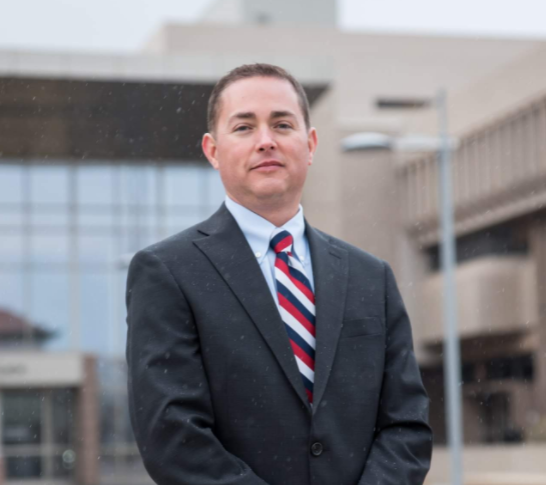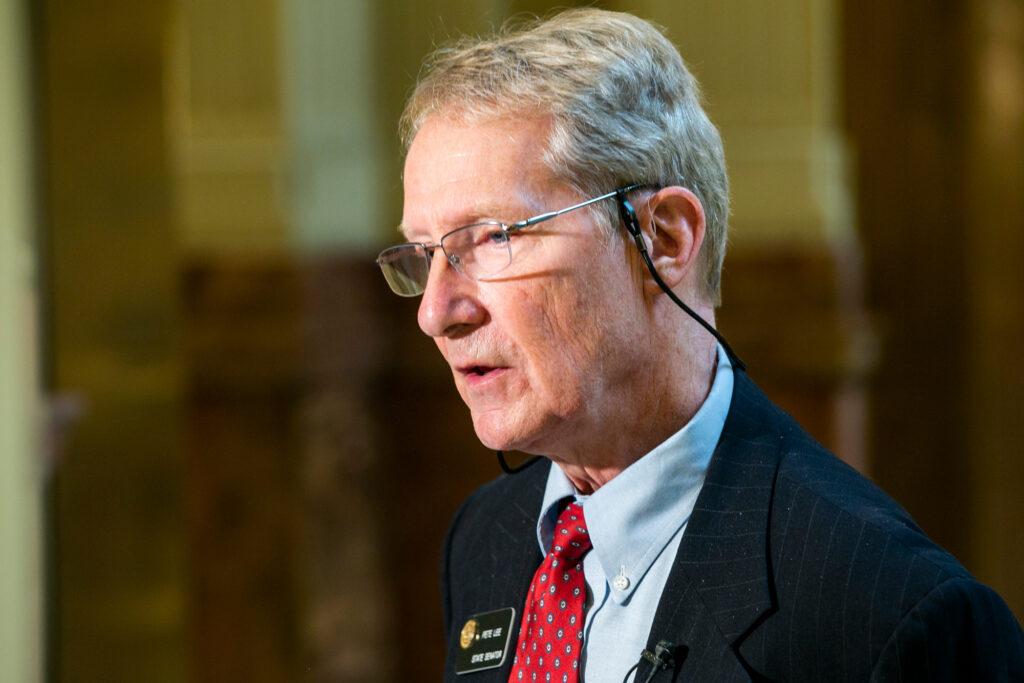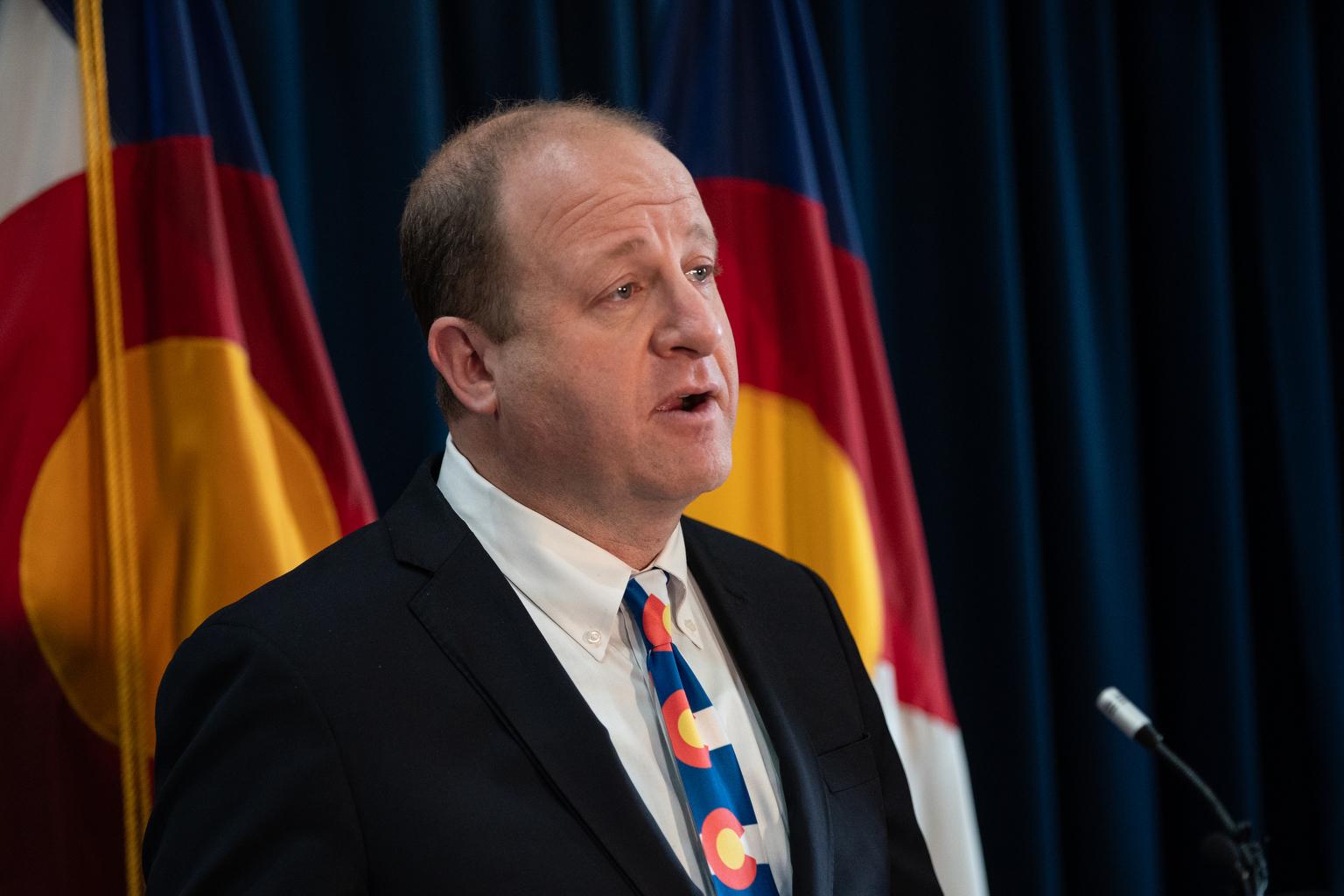
Leaders in law enforcement and elected officials in the Pikes Peak region recently raised the alarm about increasing rates of violent crime both locally and statewide. The concern stems from a report by the Denver-based Common Sense Institute that puts the blame for the increase on changes in legislation.
KRCC's Abigail Beckman spoke with the District Attorney for the 4th Judicial District Michael Allen and Democratic state Sen. Pete Lee about the issue.
Highlights from the interview with DA Michael Allen
On why he and other local officials decided to speak out:
It was just a desire to notify the public of what's been happening with the legislation over the last few years and how that's impacting public safety. That's really the impetus for the whole thing and really to let the legislature know, too, that if there's issues that we need to bring to the public that we're willing to do that. If we see red flags that are causing us concerns, then I think it's our duty to bring that to the public. And if we're not, then we're derelict and I'm not gonna sit here in this seat and not bring issues to the public's attention.

On why he thinks the legislature is responsible for increasing rates of violent crime:
We've got a confluence of events. [In 2020, the Department of Corrections] reduced the prison population by 17.6 percent, and they attributed the vast majority of that decrease to COVID response. So they're making decisions on how people are paroled out of the prison system based on COVID, as opposed to other indicators, such as amenability to treatment programs, success in those types of treatment programs and suitability for earlier release then would have been typically authorized under the law.
… There's also legislation really going after law enforcement and the law enforcement community with Senate Bill 217, and then the follow up this last legislative session really has impacted the ability of law enforcement agencies, the sheriff's office, and police departments to effectively recruit good candidates to be in those agencies.
Drug possession [was changed] in a sweeping way in 2019 from a felony to a misdemeanor (HB 1263). I think it was irresponsible as well to a certain degree, and where I find it to be irresponsible is when we talk about a really dangerous drug, like fentanyl. Fentanyl is not like marijuana. It is much more dangerous, much more deadly. And frankly is something that should be taken much more seriously. And instead the legislature, in 2019, reduced fentanyl possession for four grams or less to a misdemeanor. That drug…is much too dangerous, two milligrams or less can sometimes be deadly and we're seeing overdose deaths from fentanyl on the rise and cartels are taking advantage of the weaknesses in our laws on that particular front.
Obviously, correlation is not always causation, but there's enough there to cause people that are paying attention to this kind of thing, to see red flags flying up.
On changes he suggests to counter the problem:
I would like to see the legislature and the governor's office, frankly, listen to the people that are on the front lines with this stuff. Police departments and DA's offices around the state should be more engaged and asked to be more engaged by the governor's office and the legislature on some of these issues. We are the only ones that are tasked with ensuring public safety … and instead, the primary voices that these folks are listening to are the ACLU and defense attorneys.
Highlights from the interview with Sen. Pete Lee
A recent analysis from the Denver Post shows that while violent crime overall is up, the increase shouldn't be blamed on any single reason, and that it will take time to discern all the factors involved.
KRCC reached out to Democratic state Sen. Pete Lee, a long-time advocate for criminal justice reform from the Pikes Peak region, for his take on the report.
On increasing violent crime in Colorado:
Crime has been going up all across the country, not just in Colorado. So to say these are the two things that are happening in Colorado and causing crime to increase ... crime was increasing in those states as well.
I would also say that these are really complex issues and academics study the causes of crime and it will be sometime before we really know what is contributing. I would be suspicious of any discussion of increased crime which doesn't talk about the pandemic and doesn't attribute some of the increase in crime to the isolation and social causes that accompanied the pandemic. I think the police chief in Denver said a significant number of the violent assaults were a result of domestic violence. A report that's analyzing increases in crime, which fails to take account of increasing mental illness and lack of access to treatment - to me - is superficial and lacks discernment.
"A report that's analyzing increases in crime, which fails to take account of increasing mental illness and lack of access to treatment - to me - is superficial and lacks discernment."
-Democratic State Senator Pete Lee
On criticism of policies put in place to require more accountability, transparency from law enforcement in Colorado (SB 217):
It was a bipartisan bill...that imposed civil liability on police officers for misconduct. We circumscribed governmental immunity. We also outlawed chokeholds significantly. Also ... we required a "duty to report" by police.
So the police who were standing and watching Derek Chauvin choking ... George Floyd ... they would have a duty to report that misconduct under Senate Bill 217.
That bill also provided for body cameras and revised the fleeing felon rule. So you can't just shoot someone who's committed a felon like the young man in Colorado Springs who was killed a while ago ... De'Von Bailey. He was alleged to have committed a felony, so he was shot when he was running away. We revised those rules.

On officials and law enforcement linking violent crime to legislative policies:
I think these press conferences and that report by CSI were the opening salvos of the 2022 campaign. They were trying to paint Democrats as soft on crime in order to position Republicans as being tough on crime. I think that's inaccurate.
I would say I try to be smart on crime. If you look at the bills that I have sponsored, they are typically based on best practices in other communities; evidence-based practices, things that other people have tried and which work.
I remember a quote from H.L. Mencken who once said that "for every complex problem, there is a solution that is clear, simple, and wrong." And that's clearly what's going on here.
Responses in both interviews have been edited for length and clarity.









